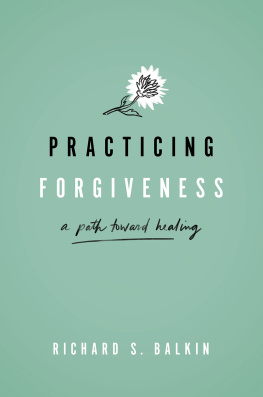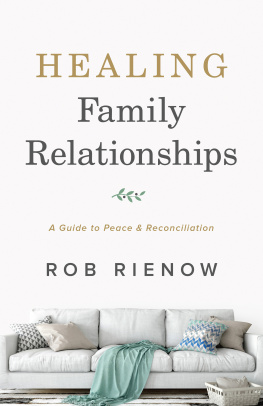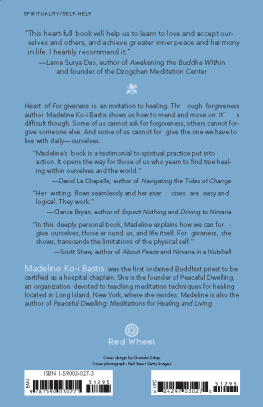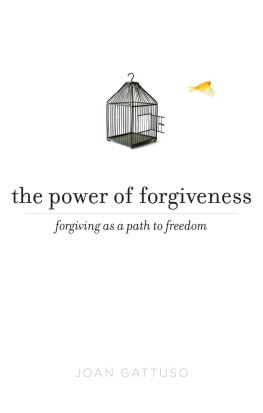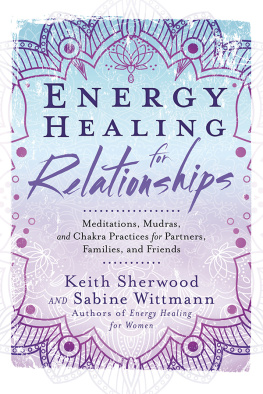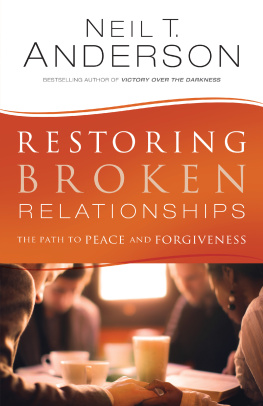PRACTICING FORGIVENESS

Oxford University Press is a department of the University of Oxford. It furthers the Universitys objective of excellence in research, scholarship, and education by publishing worldwide. Oxford is a registered trade mark of Oxford University Press in the UK and certain other countries.
Published in the United States of America by Oxford University Press
198 Madison Avenue, New York, NY 10016, United States of America.
Oxford University Press 2021
All rights reserved. No part of this publication may be reproduced, stored in a retrieval system, or transmitted, in any form or by any means, without the prior permission in writing of Oxford University Press, or as expressly permitted by law, by license, or under terms agreed with the appropriate reproduction rights organization. Inquiries concerning reproduction outside the scope of the above should be sent to the Rights Department, Oxford University Press, at the address above.
You must not circulate this work in any other form and you must impose this same condition on any acquirer.
Library of Congress Cataloging-in-Publication Data
Names: Balkin, Richard S., author.
Title: Practicing forgiveness : a path toward healing / Richard S. Balkin,
The University of Mississippi.
Description: New York : Oxford University Press, 2021. |
Includes bibliographical references and index.
Identifiers: LCCN 2020010469 (print) | LCCN 2020010470 (ebook) |
ISBN 9780190937201 (hardback) | ISBN 9780190937225 (epub)
Subjects: LCSH: Forgiveness. | Interpersonal relations.
Classification: LCC BF637.F67 B35 2020 (print) | LCC BF637.F67 (ebook) |
DDC 155.9/2dc23
LC record available at https://lccn.loc.gov/2020010469
LC ebook record available at https://lccn.loc.gov/2020010470
To my mother,
Susanne Balkin
It was very easy to get on her shit-list; it was even easier to get off it.Robert Balkin
and
To those who shared their journey with me.
Contents
The topic of forgiveness is one that resonates. We will all experience relationships that enrich our lives or are a source of distress, pain, or even trauma. When our relationships are strong and healthy, our lives are more vibrant, and when our relationships fall short of our expectations or even are harmful, our lives are filled with challenges and personal struggles. In any event, few relationships in our lives are perfect. Inevitably, we may be let down by the people we count on most, and how these relationships are eventually reconciled or abandoned is the subject of this book.
Every book is written for a particular audience. I struggled to define for whom I was writing this book. On one hand, I believe the forgiveness journey is a universal one, and there was nothing in this book that was a professional secret and could not be shared with anyone wishing to gain insight or evaluate their feelings about forgiveness. On the other hand, after talking to counseling professionals from across the country, I believed I had put together a helpful model and instrument that could be beneficial to their practice and work with clients struggling with issues of conflict and forgiveness. Ultimately, I hope this book bridges both audiences.
Although forgiveness is a universal construct, the manner in which we address conflict and forgiveness is distinct, and perhaps each situation has unique elements that make generalizing any model or behavior difficult or complicated. How you feel about one person who breaks a promise or fails in a relationship may be totally different from how you feel about another person who behaves in a similar manner. Context matters, and the reader is encouraged to look at each situation from a perspective of the special circumstances that might affect the relationship and to refrain from labeling oneself as a forgiving or unforgiving person.
Nevertheless, in this book, I present a perspective on interpersonal and intrapersonal forgiveness. Most readers are probably familiar with interpersonal forgiveness, in which traditionally two people work to overcome breaches or conflicts in their relationship stemming from an offense, harm, or pain that one inflicted on another. In this case, a transgression is forgiven, and a relationship is reconciled. Intrapersonal forgiveness may be a new element to consider for many readers. Intrapersonal forgiveness is an individual journey, in which forgiveness is sought, not through reconciliation, but rather through a desire to relinquish feelings of ill will toward the offender, but not necessarily involving the offender in the process. In other words, intrapersonal forgiveness is within oneself. Sometimes, reconciliation and the renegotiation of a relationship is not healthy or not possible. Intrapersonal forgiveness is addressed as way of moving forward to promote self-healing.
Stories are used throughout the book to describe various processes and conflicts that individuals may face in their forgiveness journey. Some of the stories highlight trauma and difficult, painful journeys. It is not necessary that all issues related to conflict and forgiveness include pain and trauma. Sometimes, we address forgiveness for minor problems or inconveniences, such as, I am sorry I forgot to pay you back, or I was not entirely honest about why I was late. Smaller issues may affect a relationship, and the reader is encouraged to keep this in mind throughout the book. A brief description of each chapter follows.
, Harmful Messages and Pressures to Forgive, introduces the forgiveness journey. Forgiveness is a process, and some of the issues involved in working through the forgiveness journey are highlighted. Descriptions of interpersonal and intrapersonal forgiveness are featured.
Some of our ideas about forgiveness come from long-held beliefs and practices stemming from our background, such as our ethnicity and race, religion, and personal and family values. These and other various facets of culture are explored in , Forgiveness and Culture: Beliefs and Conflicts. We examine the impact that culture can have on our beliefs about forgiveness and conflict and the decision to move forward in interpersonal or intrapersonal forgiveness.
The Forgiveness Reconciliation Model (FRM) is a primary component of this book and is introduced in , The Forgiveness Reconciliation Model: An Overview. The FRM was initially developed from a Jewish conceptualization of forgiveness but is considered a transcultural model, having broad applications across various cultures and secular beliefs and practices. The FRM is compared and contrasted with other forgiveness models.
The FRM is a four-phase model that is broken down in subsequent chapters:
, Collaborative Exploration
, The Role of Reconciliation
, Remorse and Change
, Choosing the Outcome
.
Finally, , along with references from professional literature.
I hope that that this process of addressing conflict and forgiveness and the tools provided have a positive effect on those taking this journey. Addressing every conceivable nuance in this process is impossible, but hopefully you have found information that is helpful to you. My very best wishes on your journey.
Richard S. Balkin, PhD, LPC, NCC
Writing this book required extensive feedback from individuals who provided guidance, enthusiasm, and insight. I owe a huge debt of gratitude to Dr. Michelle Perepiczka, who read every chapter and provided insights, suggestions, and validation for what I was trying to convey. Thank you is not enough. You are gold.

